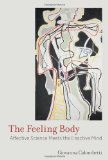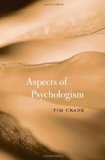December 16, 2013

Drawing Life: Narratives and the Sense of Self by Thomas J. Cottle (Hamilton Books, 2013)
(amazon.co.uk)
Book description from the publisher:
In Drawing Life, Thomas J. Cottle examines the ways people interpret their life experiences and construct meanings for the events they have encountered. In this manner, they discover their various identities and the essence of what we call the self. In reading the sixteen life studies contained in this volume, we encounter both inner reflections as well the power of culture to shape the meanings people give to their circumstances and the events that befall them. The stories also reflect the role of human relationships and social institutions in defining our personal identities and sense of justice. What makes us unique, therefore, is the personal story we tell as it reveals our constructions of the world and of ourselves. The stories recounted in Drawing Life illuminate not only our past, but also our perceptions of the present and our imaginings of the future. In this way, they become anthologies of our life experiences.
Google Books preview:
See also: Author’s website
Comments (0)
- new books,self
December 12, 2013

The Feeling Body: Affective Science Meets the Enactive Mind by Giovanna Colombetti (MIT Press, 2013)
(kindle ed.), (amazon.co.uk)
Book description from the publisher:
In The Feeling Body, Giovanna Colombetti takes ideas from the enactive approach developed over the last twenty years in cognitive science and philosophy of mind and applies them for the first time to affective science — the study of emotions, moods, and feelings. She argues that enactivism entails a view of cognition as not just embodied but also intrinsically affective, and she elaborates on the implications of this claim for the study of emotion in psychology and neuroscience.
In the course of her discussion, Colombetti focuses on long-debated issues in affective science, including the notion of basic emotions, the nature of appraisal and its relationship to bodily arousal, the place of bodily feelings in emotion experience, the neurophysiological study of emotion experience, and the bodily nature of our encounters with others. Drawing on enactivist tools such as dynamical systems theory, the notion of the lived body, neurophenomenology, and phenomenological accounts of empathy, Colombetti advances a novel approach to these traditional issues that does justice to their complexity. Doing so, she also expands the enactive approach into a further domain of inquiry, one that has more generally been neglected by the embodied-embedded approach in the philosophy of cognitive science.
Google Books preview:
Comments (0)
- cognitive science,new books,philosophy of mind
December 10, 2013

Aspects of Psychologism by Tim Crane (Harvard University Press, 2013)
(amazon.co.uk)
Book description from the publisher:
Aspects of Psychologism is a penetrating look into fundamental philosophical questions of consciousness, perception, and the experience we have of our mental lives. Psychologism, in Tim Crane’s formulation, presents the mind as a single subject-matter to be investigated not only empirically and conceptually but also phenomenologically: through the systematic examination of consciousness and thought from the subject’s point of view.
How should we think about the mind? Analytical philosophy tends to address this question by examining the language we use to talk about our minds, and thus translates our knowledge of mind and consciousness into knowledge of the concepts which this language embodies. Psychologism rejects this approach. The philosophy of mind, Crane believes, has become too narrow in its purely conceptual focus on the logical and linguistic formulas that structure thought. We cannot assume that the categories needed to understand the mind correspond absolutely with such semantic categories. A central claim of Crane’s psychologism is that intentionality–the “aboutness” or “directedness” of the mind–is essential to all mental phenomena. In addition, Crane responds to proponents of materialist doctrines about consciousness and defends the claim that perception can represent the world in a non-conceptual, non-propositional way.
Philosophers must take more seriously the findings of psychology and phenomenology, Crane contends. An investigation of mental phenomena from this broader viewpoint opens up philosophy to a more realistic and plausible account of the mind’s nature.
See also: Author’s website
Comments (0)
- consciousness,new books,philosophy of mind
December 9, 2013

More than Nature Needs: Language, Mind, and Evolution by Derek Bickerton (Harvard University Press, 2013)
(amazon.co.uk)
Book description from the publisher:
The human mind is an unlikely evolutionary adaptation. How did humans acquire cognitive capacities far more powerful than anything a hunting-and-gathering primate needed to survive? Alfred Russel Wallace, co-founder with Darwin of evolutionary theory, saw humans as “divine exceptions” to natural selection. Darwin thought use of language might have shaped our sophisticated brains, but his hypothesis remained an intriguing guess–until now. Combining state-of-the-art research with forty years of writing and thinking about language evolution, Derek Bickerton convincingly resolves a crucial problem that both biology and the cognitive sciences have hitherto ignored or evaded.
What evolved first was neither language nor intelligence–merely normal animal communication plus displacement. That was enough to break restrictions on both thought and communication that bound all other animals. The brain self-organized to store and automatically process its new input, words. But words, which are inextricably linked to the concepts they represent, had to be accessible to consciousness. The inevitable consequence was a cognitive engine able to voluntarily merge both thoughts and words into meaningful combinations. Only in a third phase could language emerge, as humans began to tinker with a medium that, when used for communication, was adequate for speakers but suboptimal for hearers.
Starting from humankind’s remotest past, More than Nature Needs transcends nativist thesis and empiricist antithesis by presenting a revolutionary synthesis–one that instead of merely repeating “nature and nurture” clichés shows specifically and in a principled manner how and why the synthesis came about.
Google Books preview:
See also: Author at Academia.edu – “How ‘More Than Nature Needs’ Changes the Linguistic and Cognitive Landscape: A Study Guide”
Comments (0)
- human evolution,language,mind,new books






